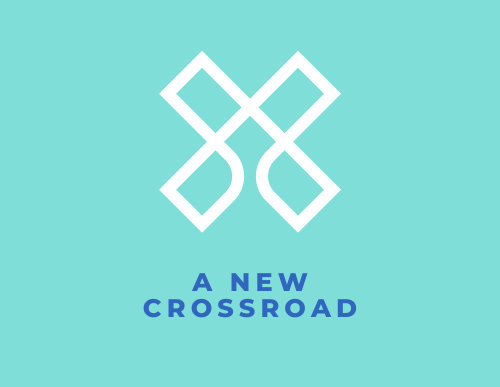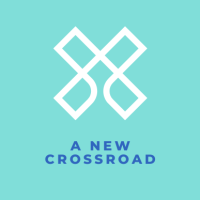Understanding ADHD Treatment
The Prevalence of ADHD
Attention-Deficit/Hyperactivity Disorder (ADHD) is a prevalent condition, particularly among children and adolescents. According to a national survey conducted by the CDC in 2022, an estimated 7 million (11.4%) children aged 3–17 years in the United States have been diagnosed with ADHD (CDC). This high prevalence underscores the importance of effective ADHD treatment options and the necessity for a comprehensive understanding of this condition.
ADHD can manifest in various ways, often characterized by persistent patterns of inattention, hyperactivity, and impulsivity. The impact of ADHD on an individual’s daily functioning and quality of life can be significant, making timely and appropriate treatment crucial. For those looking for comprehensive treatment options, we offer an array of services tailored to mental health and addiction needs, including specialized adhd treatment programs.
Co-Occurring Conditions
ADHD often exists alongside other mental health conditions, complicating diagnosis and treatment. Nearly 78% of children with ADHD have at least one other co-occurring condition, such as depression, autism spectrum disorder, or Tourette syndrome. These co-occurring conditions can exacerbate the symptoms of ADHD, making it essential to address all aspects of an individual’s mental health.
Effective ADHD treatment requires a multi-faceted approach that considers these co-occurring conditions. At our facility, we provide integrated care that addresses not only ADHD but also any additional mental health issues such as depression, anxiety, and bipolar disorder. By offering a range of services under one roof, we ensure comprehensive care tailored to each individual’s unique needs.
| Condition | Prevalence with ADHD (%) |
|---|---|
| Depression | ~38 |
| Anxiety Disorders | ~60 |
| Autism Spectrum Disorder | ~20 |
| Tourette Syndrome | ~10 |
Understanding the complexities of ADHD and its co-occurring conditions enables us to provide effective and holistic treatment plans. We strive to support our clients with a thorough, compassionate approach, ensuring they receive the best care possible for their mental health and addiction treatment needs.
For those dealing with multiple diagnoses, our team is well-equipped to handle complexities with expertise in areas such as PTSD treatment and opioid addiction treatment, ensuring all aspects of an individual’s health are addressed.
Available Treatment Options
Navigating ADHD treatment can be a daunting task. At A New Crossroad, we understand the complexities involved and are here to guide you through the available options. Our treatment plans are tailored to meet your unique needs, ensuring the best possible outcomes.
Behavioral Treatments
Behavioral treatments for ADHD focus on skills training and behavior modification. These interventions can be highly effective, especially when tailored to the individual and their environment (CDC). Behavioral therapy, particularly for children with severe ADHD, has been proven to significantly benefit symptom management.
Key approaches include:
- Parent Training: This involves teaching parents strategies to interact differently with their children, promoting desirable behaviors and minimizing problem behaviors. Parent training can reduce tantrums, defiance, and improve parent-child interactions both at home and at school (Child Mind Institute).
Medication Therapies
Medication is a cornerstone in ADHD treatment, often providing significant symptom relief. There are two main types of medication therapies used to treat ADHD:
- Stimulant Medications: These are the most commonly prescribed medications for ADHD. They work by increasing the levels of certain chemicals in the brain to help improve concentration and reduce impulsivity.
- Non-Stimulant Medications: These are used when stimulant medications are not effective or cause undesirable side effects. They also help in improving focus, attention, and impulse control.
Alternative Treatments
Alternative treatments can complement conventional ADHD therapies. While not a replacement for traditional treatments, they can provide additional benefits:
- Exercise: Regular physical activity, particularly 30 minutes a day of heart-pumping aerobic exercise, has been shown to boost mood and decrease ADHD symptoms in kids.
- Dietary Strategies: While research has not conclusively proven that specific dietary changes can improve ADHD symptoms, eliminating items from the diet that may worsen the disorder could be beneficial.
- Supplements: Fish oil supplements, containing omega-3 and omega-6 fatty acids, have shown mixed reviews in treating ADHD symptoms (WebMD).
- CBD Oil: Derived from the marijuana plant without the psychoactive compound THC, CBD oil has shown potential in improving ADHD symptoms based on a small study of 30 adults (WebMD).
| Treatment Type | Key Features | Effectiveness |
|---|---|---|
| Behavioral Treatments | Skills training, parent training | High |
| Medication Therapies | Stimulants, non-stimulants | Very High |
| Alternative Treatments | Exercise, dietary changes, supplements | Varies |
To explore how these treatments can be integrated into a comprehensive ADHD management plan, consider coming in for a personalized consultation. We also offer resources on anxiety treatment, depression treatment, and other co-occurring conditions that often accompany ADHD. Visit our website for more information on how we can support you on your journey to better mental health.
Medication for ADHD
When it comes to ADHD treatment at A New Crossroad, we offer a range of medication options to help manage the symptoms effectively. Understanding the differences between these medications can help in making an informed choice that suits individual needs.
Stimulant Medications
Stimulant medications are the most commonly prescribed for ADHD, known for their effectiveness in increasing the levels of dopamine and norepinephrine in the brain. These chemicals help in focusing thoughts and ignoring distractions, a crucial aspect of managing ADHD.
| Medication Type | Duration | Example | Common Brands |
|---|---|---|---|
| Short-Acting | 3-4 hours | Methylphenidate | Ritalin, Focalin |
| Intermediate-Acting | 5-8 hours | Amphetamine Sulfate | Adderall |
| Long-Acting | 10-16 hours | Dexmethylphenidate | Vyvanse, Concerta |
The choice of stimulant medication depends on several factors, including the duration of effect needed and the individual’s response to the medication.
Non-Stimulant Medications
Non-stimulant medications are prescribed when stimulants are either ineffective or cause unpleasant side effects. They work differently by targeting other receptors associated with ADHD symptoms.
| Medication Type | Common Brands | Key Notes |
|---|---|---|
| Atomoxetine | Strattera | Can take several weeks to show effectiveness |
| Viloxazine | Qelbree | May not work as effectively as stimulants |
Non-stimulant medications gradually build their effect, making it essential to be patient and consistent with their use.
Off-Label Uses
Off-label use of medications for ADHD involves prescribing drugs primarily meant for other conditions. This practice is often considered when standard ADHD medications are ineffective or intolerable.
| Medication Type | Common Brands | Original Use |
|---|---|---|
| Antidepressants | Wellbutrin, Tofranil, Aventyl | Depression |
| Antihypertensives | Clonidine, Guanfacine | High Blood Pressure |
Off-label medications like antidepressants and antihypertensives target various neurotransmitter pathways to help manage ADHD symptoms (WebMD).
Managing ADHD effectively often involves a combination of medications, tailored to individual responses and co-occurring conditions, such as anxiety or bipolar disorder. At A New Crossroad, we are committed to providing comprehensive ADHD treatment options to support mental health and enhance quality of life. For more information on side effects and managing medications, visit our section on managing medication side effects.
Non-Pharmacological Therapies
When it comes to managing ADHD, non-pharmacological therapies can play a crucial role in helping individuals lead more focused and balanced lives. Here, we delve into three effective non-pharmacological treatment options: behavioral therapy, educational interventions, and exercise and dietary strategies.
Behavioral Therapy
Behavioral therapy focuses on teaching skills to manage ADHD symptoms without altering the underlying condition. There are two primary interventions:
- Parent Training: Programs like Parent-Child Interaction Therapy (PCIT), Parent Management Training (PMT), and the Positive Parenting Program (Triple P) instruct parents on interacting with their children to promote desirable behaviors and reduce problem behaviors. These programs use praise and consistent consequences to improve child behavior, reduce arguing and tantrums, enhance parent-child interactions, and decrease parental stress.
- Executive Function Training: This aspect of behavioral therapy helps children develop skills to stay organized, manage time, and control impulsive behavior. This is particularly crucial in managing day-to-day activities and improving academic performance (Child Mind Institute).
Behavioral treatments show better outcomes, especially for younger children with extreme behavior problems. However, there is less evidence supporting their effectiveness for teenagers with ADHD.
Educational Interventions
Educational interventions are essential components of ADHD treatment, targeting the unique academic challenges faced by individuals with ADHD.
- Individualized Education Plans (IEPs): Schools can develop IEPs tailored to each student’s specific needs, providing accommodations such as extended test times or altered seating arrangements.
- 504 Plans: These plans outline accommodations that help students with ADHD succeed in a general education setting.
- Teacher Training: Training teachers to use classroom strategies that support students with ADHD can lead to improved academic outcomes and classroom behavior.
Educational interventions focus on creating a supportive learning environment that allows students to thrive academically despite the challenges posed by ADHD. For more information on related treatments, check out our article on educational interventions for ADHD.
Exercise and Dietary Strategies
Incorporating regular exercise and a balanced diet can significantly impact the management of ADHD symptoms.
- Exercise: Physical activity has been shown to improve attention, executive function, and reduce impulsivity and hyperactivity. Encouraging regular exercise can be a natural way to manage ADHD symptoms.
- Dietary Strategies: While the effects of diet on ADHD are still being studied, some research suggests that eliminating certain food additives and ensuring a diet rich in whole foods can help manage symptoms. Omega-3 fatty acids, commonly found in fish, have also been linked to improved cognitive function.
By combining these strategies, individuals with ADHD can experience a more balanced and focused life.
For those seeking a comprehensive approach to ADHD treatment, we invite you to explore our services at A New Crossroad. Our dedicated team is here to provide support for all your mental health and addiction treatment needs, including specialized ADHD care.
| Intervention Type | Key Features |
|---|---|
| Behavioral Therapy | Parent training, executive function coaching |
| Educational Interventions | IEPs, 504 plans, teacher training |
| Exercise and Dietary Strategies | Physical activity, balanced diet |
Explore more about managing ADHD and its associated treatments in our related articles on anxiety treatment, depression treatment, and ptsd treatment.
Managing Medication Side Effects
ADHD treatment often involves medications that can be incredibly effective, but they come with potential side effects that need careful management. Below, we explore the common side effects, growth concerns, and sleep and mood issues related to ADHD medication.
Common Side Effects
ADHD medications can induce a variety of side effects. These commonly include sleep problems, decreased appetite, delayed growth, headaches, nausea, tics, moodiness, and rebound irritability when the medication wears off (Child Mind Institute). Fortunately, most of these side effects can usually be managed by adjusting the dosage and schedule of the medicine (WebMD).
| Side Effect | Management Strategy |
|---|---|
| Sleep Problems | Adjust dosage timing, use melatonin |
| Decreased Appetite | Ensure nutritious meals, adjust dosage timing |
| Headaches | Maintain hydration, adjust dosage |
| Nausea | Take medication with food, adjust dosage |
| Tics | Consult physician, dosage adjustment |
| Moodiness | Monitor symptoms, possible medication adjustment |
| Rebound Irritability | Smaller dose before rebound, adjust dosage |
Growth Concerns
One concern many parents have is whether ADHD medications will affect their child’s growth. Children taking stimulant medication may grow more slowly, especially in the first year. However, typically, they catch up in growth by the second and third years.
Studies indicate that boys who take breaks from medication on weekends and holidays do not show decreased growth in the first year. Notably, this side effect is not observed in girls.
Sleep and Mood Issues
Sleep disturbances are a common side effect of ADHD medications. Fortunately, these issues tend to improve over time. Various strategies, such as the use of melatonin or other medications, can help address sleep problems caused by ADHD medication (WebMD; Cleveland Clinic). Children may also find it challenging to wind down at bedtime due to their ADHD symptoms rather than the medication itself.
Mood issues, including moodiness and the “rebound effect,” where irritability and aggression peak as the medication wears off, can also occur. Adding a smaller dose half an hour before this rebound can help ease off the medication more gradually. Adjusting the dosage or trying a different medication type can also address these concerns.
For more in-depth strategies on addressing sleep and mood issues, managing medication side effects, and understanding alternative ADHD treatment methods, explore our extensive resources.
By understanding these side effects and employing appropriate strategies, ADHD treatment can be effective and manageable, ensuring a better quality of life for those affected.
Comprehensive ADHD Treatment
Navigating the world of ADHD treatment requires a comprehensive approach. At A New Crossroad, we offer a variety of advanced treatment options that go beyond traditional methods. These include psychological, device-based therapies, and pharmacological innovations to help address the unique needs of individuals with ADHD.
Psychological Methods
Psychological methods form the cornerstone of comprehensive ADHD treatment. Behavioral therapy, cognitive-behavioral therapy (CBT), and family therapy are critical components of our treatment plans.
- Behavioral Therapy focuses on modifying negative behaviors and reinforcing positive ones. It helps individuals with ADHD develop better coping mechanisms and improve their organizational skills.
- Cognitive-Behavioral Therapy (CBT) helps in addressing the emotional and psychological aspects of ADHD. It aids in identifying and changing negative thought patterns that can contribute to the difficulties associated with ADHD.
- Family Therapy involves family members in the treatment process to create a supportive environment, facilitating better communication and understanding of ADHD-related challenges.
Device-Based Therapies
Device-based therapies are emerging as a promising option for ADHD treatment. These therapies often involve non-invasive methods that use technology to improve attention and focus.
- Neurofeedback is a type of biofeedback that teaches self-regulation of brain function. By monitoring brain waves and providing real-time feedback, individuals can learn to enhance their concentration and reduce ADHD symptoms.
- Transcranial Magnetic Stimulation (TMS) involves stimulating specific areas of the brain using magnetic fields. TMS has shown potential in improving executive function and attention in individuals with ADHD.
These innovative therapies provide alternative options for those who may not respond well to traditional treatments.
At A New Crossroad, we stay at the forefront of ADHD treatment advancements to provide our clients with the most effective and innovative options. Whether you’re dealing with ADHD, anxiety, depression, or other co-occurring conditions, our tailored treatment plans ensure comprehensive care and support.





